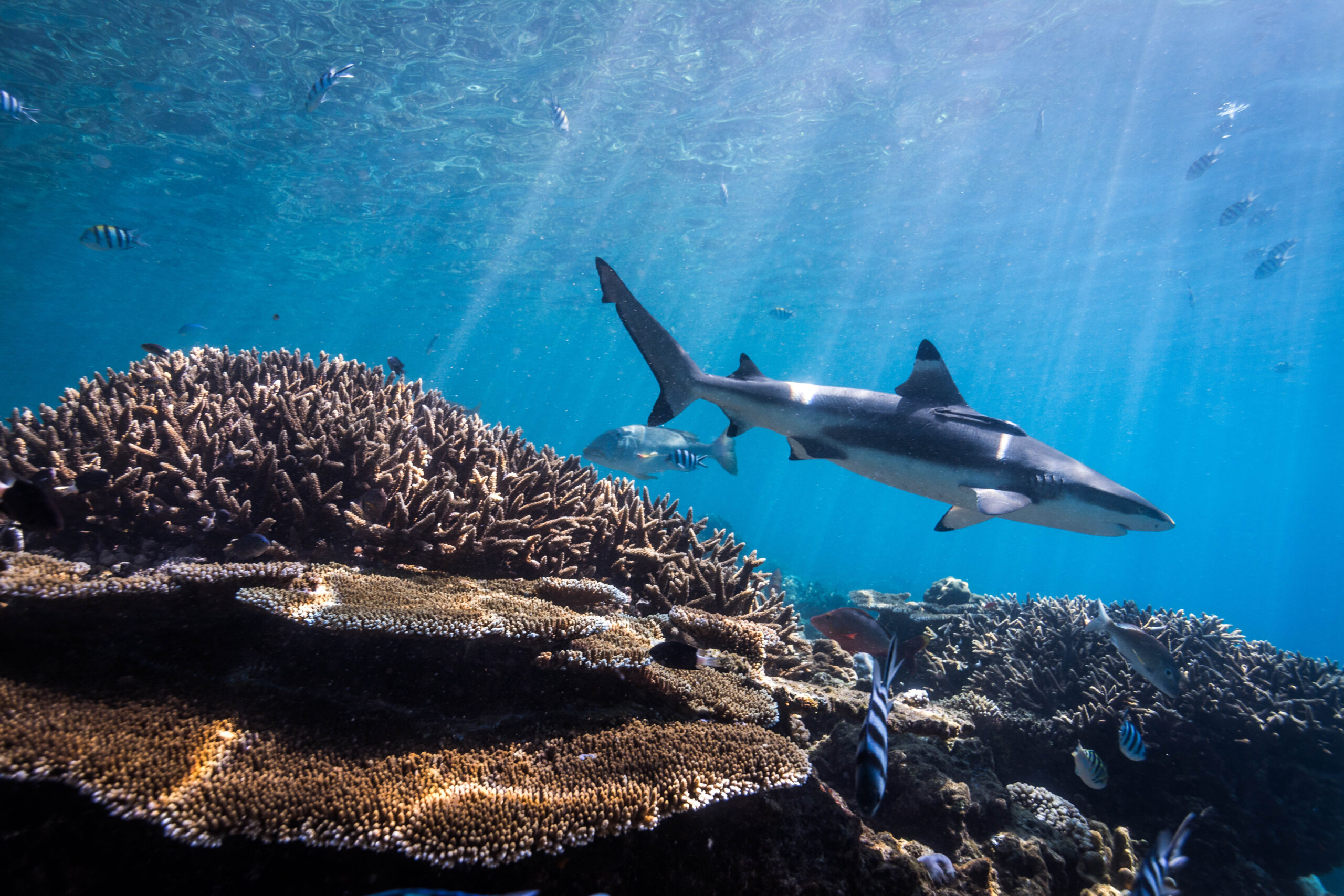Coral reef restoration projects are becoming a popular corporate environmental responsibility activity at hotel resorts. This paper presents a simple monitoring method that hotel staff can conduct without scientific training to measure the success or failure of their coral reef restoration work.
The Seychelles experienced mass bleaching in 1998 and since then natural recovery of corals has been extremely slow. As part of a large-scale coral reef restoration project, the study authors completed a restoration experiment tailored to the needs of a hotel resort while also meeting science-based principles of ecological restoration. Here, the specific hotel need was to restore a shallow degraded patch reef accessible to hotel guests by snorkeling, and within swimming distance of the beach. Over 2,000 nursery-grown corals were transplanted to a 1-3 m deep degraded patch reef, including branching (15 species), massive (23 species), and encrusting (7 species) growth types.
To monitor if the restoration was successful, hotel staff were trained to conduct a simple monitoring protocol using a map of the site to aid in finding the monitored colonies. Each monitored colony had a reflective tile attached to the substrate on its north side. Coral status was recorded (alive, dead, or bleaching) and corals were photographed from above, with the reflective square in the field of view.
Even after successful training, hotel staff were unable to conduct the monitoring protocol monthly due to high turnover and limited time availability. Instead, survival and growth data were only measured at the end of the experiment (after 11.5 months). Even so, the monitoring protocol was robust enough to detect differences in survival and growth between coral growth types. Survival of massive and encrusting corals was higher than branching corals. However, the surviving branching corals grew faster than the massive and encrusting corals.
Implications for managers
- Partnering with hotel resorts can provide additional funds and labor to assist with project implementation and monitoring. This low-tech monitoring protocol is easy enough for hotel staff to conduct and robust enough to detect differences in the survival and growth of coral transplants.
- High hotel staff turnover and lack of allocated time for staff to conduct monitoring work are important considerations that could put a project at risk.
- Gaining a commitment from hotel management to support the training of staff and allocating adequate staff time for monitoring activities is critical for the success of these coral reef restoration.
Authors: Frias-Torres, S., C. Reveret, K. Henri, N. Shah and P.H. Montoya Maya
Year: 2023
View Full Article
PeerJ 11:e15062 https://doi.org/10.7717/peerj.15062


